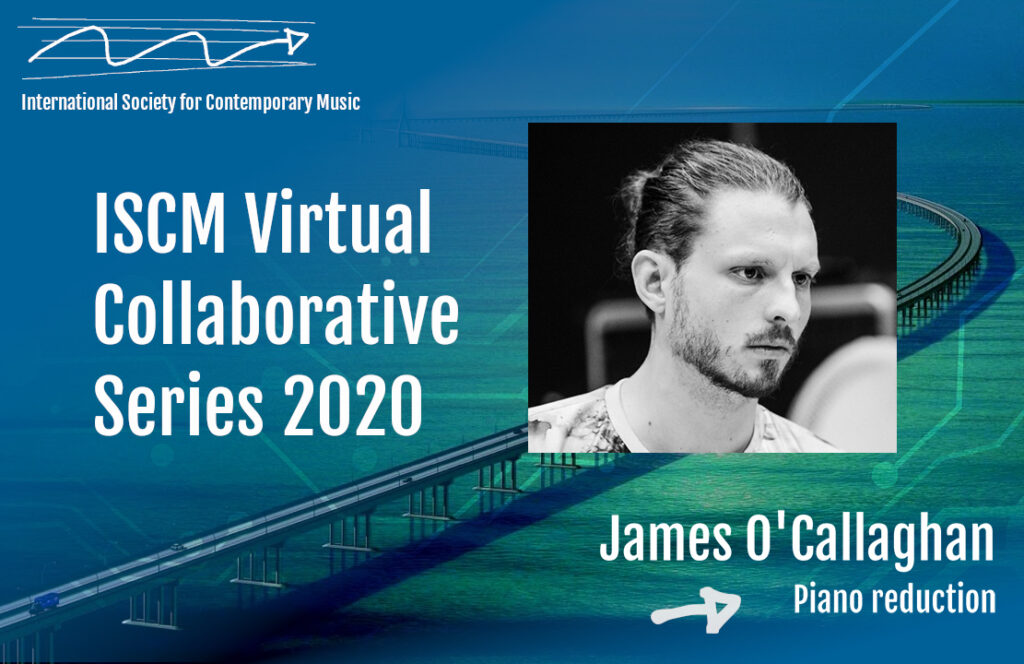James O’Callaghan: Piano reduction

(Submitted by ISCM – CANADIAN SECTION)
James O’Callaghan (b. 1988) is a composer and sound artist based in Montréal praised for his “mastery of materials and musical form.” (Electromania, Radio France) His music has been described as “very personal… with its own colour anchored in the unpredictable.” (Goethe-Institut) Never having studied an instrument, he came to music first through making industrial electronic dance music. His work intersects acoustic and electroacoustic media, employing field recordings, amplified found objects, computer-assisted transcription of environmental sounds, and unique performance conditions. His artistic output, spanning chamber, orchestral, live electronic and acousmatic idioms, audio installations, and site-specific performances, has been performed in 26 countries, and variously commissioned by the Groupe de Recherches Musicales (INA-GRM), Gaudeamus Muziekweek, the National Youth Orchestra of Canada, Esprit Orchestra, l’Ensemble Contemporain de Montréal, Standing Wave, and many others. His album Espaces tautologiques, released by empreintes DIGITALes, won a Prix Opus, and was listed by 5:4 as one of the “best albums of 2016”. His extended collaboration with Ensemble Paramirabo resulted in a portrait album of his works in 2019, entitled Alone and unalone. It was released on Ravello Records and was nominated for a JUNO award. His music has been the recipient of nearly 40 national and international prizes and nominations, including the ISCM Young Composer Award (2017), the Salvatore Martirano Award (2016), the Robert Fleming Prize (2015), the Jan V. Matejcek Award in New Classical Music (2018), the Jeu de Temps-Times Play Awards (2014), the SOCAN Foundation John Weinzweig Grand Prize (2014), and the audience and jury prize from the ECM+ Génération 2018 tour.
Piano reduction for piano and electronics (2019) was commissioned by Cheryl Duvall with support from the Canada Council for the Arts. According to the composer, “The piano is often called ‘the composer’s instrument,’ with the conceit that it is capable of distilling the whole universe of sound in its eighty-eight keys. This idea is put into relief through the practice of creating piano reductions, which aim to condense works for larger forces (all the way up to, and especially, the orchestra) to something playable by a single pianist. The limitations of this idea quickly become evident as the piano is asked to reduce sounds that are less and less similar to the ones it was designed to make. There is a tension of meaning between things like the piano and the relationships they have or we give them. They can be reservoirs for memories and associations: whether personal, historical, or cultural. Sometimes these associations can be a great burden in the extent to which the piano and the pianist are meant to be able to represent and express something, to be virtuosic and total. The piece grapples with the piano as something which is fundamentally itself and yet strives incessantly to be something other, amid fragility, impermanence, and loss.”

ISCM
